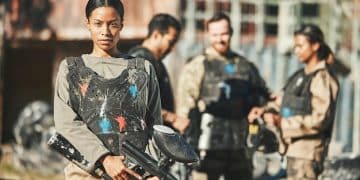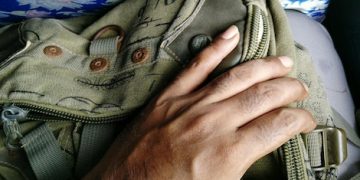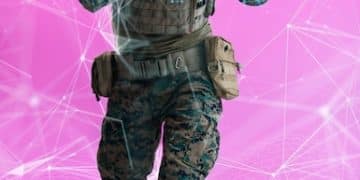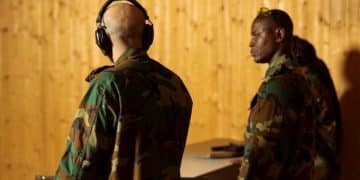Military Chaplains in 2025: Evolving Roles in Modern Warfare
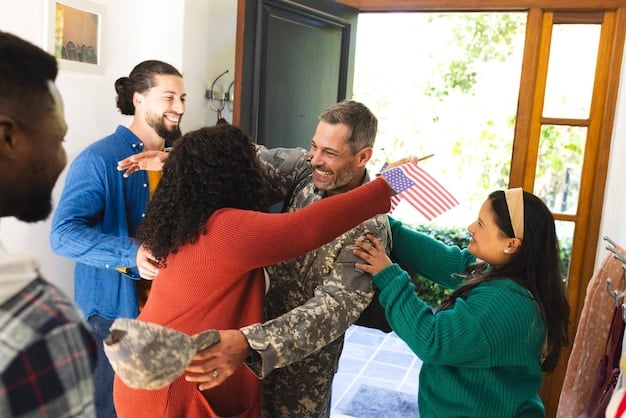
The Role of Military Chaplains in Modern Warfare: A 2025 Perspective highlights the evolving duties of chaplains, focusing on moral guidance, mental health support, and spiritual resilience amidst the complexities and technological advancements of contemporary conflicts.
As warfare evolves, so too does the role of those who provide spiritual and moral guidance to service members. Exploring The Role of Military Chaplains in Modern Warfare: A 2025 Perspective will offer insights into the multifaceted challenges and essential contributions of these individuals within the armed forces.
Understanding the Core of Military Chaplaincy
Military chaplaincy is a unique and vital aspect of armed forces worldwide, providing spiritual, ethical, and emotional support to service members. As military operations become increasingly complex, the traditional role of the chaplain is also evolving.
Historical Context of Chaplains in Warfare
Chaplains have been a part of military forces for centuries, offering comfort, guidance, and religious services to soldiers. Their role has adapted over time to meet the changing needs of the military community.
The Multifaceted Role of Today’s Military Chaplain
Today’s military chaplain is much more than just a religious leader. They are counselors, advisors, and advocates for the well-being of service members. This expanded role requires specialized training and a deep understanding of military culture.
- Providing religious services and spiritual guidance
- Offering counseling and support during deployments
- Advising commanders on ethical and moral issues
- Facilitating communication between service members and their families
The core of military chaplaincy lies in the ability to provide a sense of hope and resilience in challenging circumstances. Chaplains are often the first point of contact for service members struggling with mental health issues, relationship problems, or spiritual crises. Their presence helps create a more supportive and compassionate military environment.
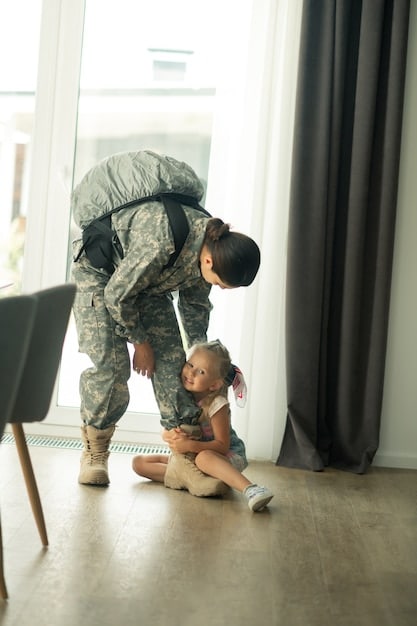
The Evolving Challenges in Modern Warfare
Modern warfare presents unprecedented challenges for military chaplains. The nature of conflict has changed, with technological advancements and asymmetrical threats creating new moral and ethical dilemmas for service members.
Impact of Technology on Moral Decision-Making
The use of drones, cyber warfare, and artificial intelligence raises complex questions about accountability and the value of human life. Chaplains play a crucial role in helping service members navigate these moral gray areas.
Addressing the Invisible Wounds of War
Post-traumatic stress disorder (PTSD), traumatic brain injury (TBI), and moral injury are common among veterans. Chaplains provide a safe space for service members to process their experiences and find meaning in the aftermath of war.
- Helping service members cope with the psychological impact of combat
- Providing guidance on ethical issues related to modern warfare
- Supporting families dealing with the stress of deployment
- Facilitating healing and reconciliation after conflict
Chaplains must adapt to the changing landscape of warfare by staying informed about emerging technologies and understanding the psychological toll of modern conflict. Their ability to connect with service members on a personal level is essential for building trust and fostering resilience.
Preparing Chaplains for 2025: Training and Adaptation
To effectively meet the challenges of modern warfare, military chaplains require enhanced training and specialized skills. The military must invest in programs that equip chaplains with the knowledge and resources they need to support service members in the years to come.
Enhancing Mental Health Training
Chaplains should receive comprehensive training in mental health counseling, crisis intervention, and trauma-informed care. This will enable them to identify and address the early signs of psychological distress among service members.
Developing Cultural Competency
The military is becoming increasingly diverse, and chaplains must be equipped to minister to service members from a wide range of cultural and religious backgrounds. Cultural competency training will help chaplains build bridges and foster inclusivity within the military community.
- Providing specialized training in mental health and trauma-informed care
- Developing cultural competency to minister to diverse populations
- Incorporating technology into chaplaincy practices
- Promoting interfaith dialogue and understanding
Chaplains must embrace new technologies and approaches to ministry. They should be trained in online counseling, social media engagement, and virtual reality simulations. By adapting to the digital age, chaplains can reach service members in new and innovative ways.
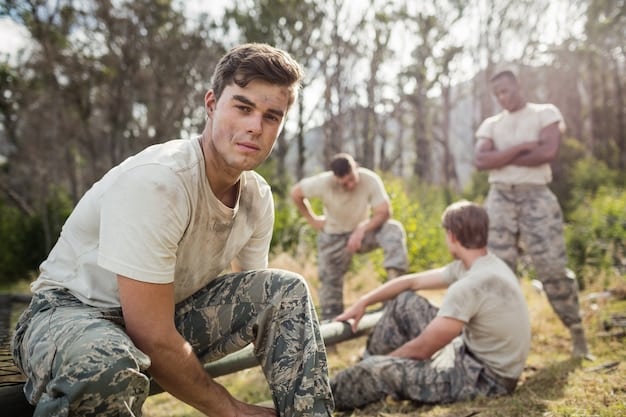
The Role of Interfaith Dialogue in Military Chaplaincy
In an increasingly diverse military, interfaith dialogue plays a crucial role in fostering understanding and respect among service members. Chaplains from different faith traditions can work together to promote tolerance and build bridges across cultural divides.
Building Bridges Across Faith Traditions
Interfaith dialogue creates opportunities for chaplains to learn from one another and develop a deeper appreciation for different religious perspectives. By working together, chaplains can create a more inclusive and welcoming environment for all service members.
Addressing Religious Discrimination and Bias
Chaplains can play a key role in addressing religious discrimination and bias within the military. They can advocate for policies that protect the religious freedom of all service members and promote understanding and respect across faith traditions.
- Promoting interfaith understanding and cooperation
- Addressing religious discrimination and bias
- Providing spiritual support to service members of all faiths
- Facilitating dialogue between different religious communities
Interfaith dialogue is not about compromising one’s own beliefs, but rather about learning to understand and appreciate the beliefs of others. Chaplains who engage in interfaith dialogue can help create a more cohesive and respectful military community.
Chaplains as Advocates for Ethical Warfare
Military chaplains have a unique opportunity to advocate for ethical warfare and promote respect for human dignity in armed conflict. Their role as moral advisors to commanders can help ensure that military operations are conducted in accordance with international law and ethical principles.
Advising Commanders on Ethical Decision-Making
Chaplains can provide guidance to commanders on a wide range of ethical issues, including the treatment of prisoners of war, the protection of civilians, and the use of force. Their insights can help commanders make informed decisions that minimize harm and uphold moral standards.
Promoting Respect for Human Dignity
Chaplains can promote respect for human dignity by advocating for policies that protect the rights of civilians, prevent torture and abuse, and ensure that all individuals are treated with fairness and compassion. Their presence can help create a more humane and just military environment.
- Providing ethical guidance to military leaders
- Promoting respect for human dignity in armed conflict
- Advocating for policies that protect the rights of civilians
- Ensuring accountability for war crimes and human rights abuses
Chaplains who advocate for ethical warfare play a vital role in shaping the moral character of the military. Their efforts can help ensure that military operations are conducted in a manner that reflects the values of justice, compassion, and respect for human life.
The Future of Military Chaplaincy: A 2025 Vision
Looking ahead to 2025, the role of military chaplains will continue to evolve in response to the changing nature of warfare and the evolving needs of service members. A forward-thinking approach to chaplaincy will be essential for ensuring that the military community receives the spiritual and moral support it needs.
Embracing Technology and Innovation
Chaplains must embrace technology and innovation to reach service members in new and effective ways. This includes utilizing online counseling platforms, social media, and virtual reality simulations to provide support and guidance.
Strengthening Community Partnerships
Chaplains should strengthen partnerships with community organizations, faith-based groups, and mental health providers to expand the resources available to service members and their families. Collaboration and networking will be essential for creating a comprehensive support system.
- Embracing technology and innovation in ministry
- Strengthening community partnerships to expand resources
- Promoting resilience and well-being among service members
- Advocating for policies that support the military community
The future of military chaplaincy depends on the ability to adapt to change, embrace innovation, and build strong relationships with service members and the wider community. By investing in the training and development of chaplains, the military can ensure that its members receive the spiritual and moral support they need to thrive in the years to come.
| Key Point | Brief Description |
|---|---|
| 🛡️ Ethical Warfare | Chaplains advise on ethical conduct in military operations. |
| 🤝 Interfaith Dialogue | Promotes understanding among different faith traditions. |
| 🧠 Mental Health Support | Chaplains provide counseling and crisis intervention services. |
| 📱 Technology Integration | Utilizing digital platforms for wider service member support. |
Frequently Asked Questions
▼
The primary role is to provide spiritual and ethical support to service members, offering guidance, counseling, and religious services to enhance their well-being.
▼
Chaplains offer confidential counseling and support, helping service members cope with stress, trauma, and other mental health challenges in a safe environment.
▼
It involves fostering understanding and respect among different religious traditions within the military, promoting inclusivity and cooperation among service members.
▼
Chaplains undergo specialized training in theology, counseling, and military culture to effectively address the unique challenges faced by service members and their families.
▼
Chaplains navigate complex ethical issues such as the use of drones, treatment of POWs, and moral implications of new military technologies, providing ethical guidance.
Conclusion
In conclusion, the role of military chaplains is evolving to meet the demands of modern warfare, focusing on mental health, ethical guidance, and spiritual resilience. By adapting to new challenges and embracing innovation, chaplains can continue to provide essential support to service members in the years to come.
